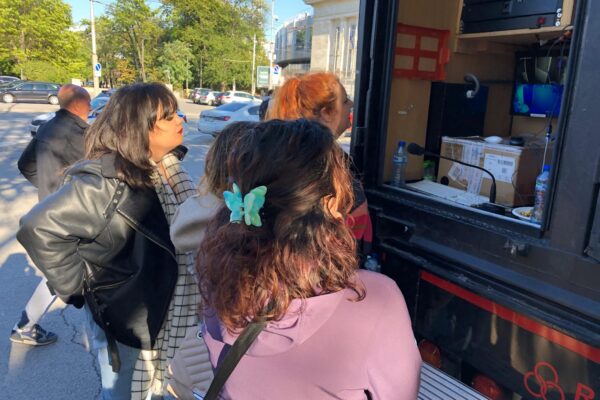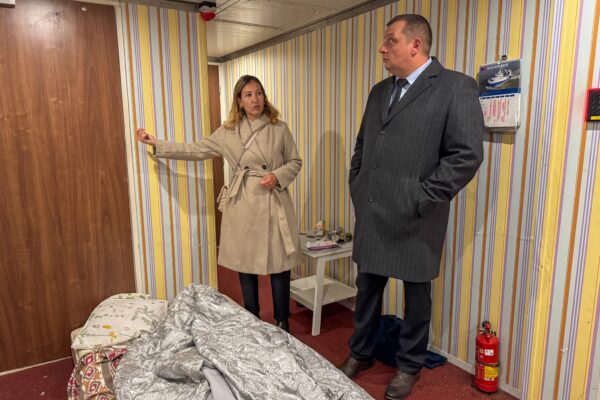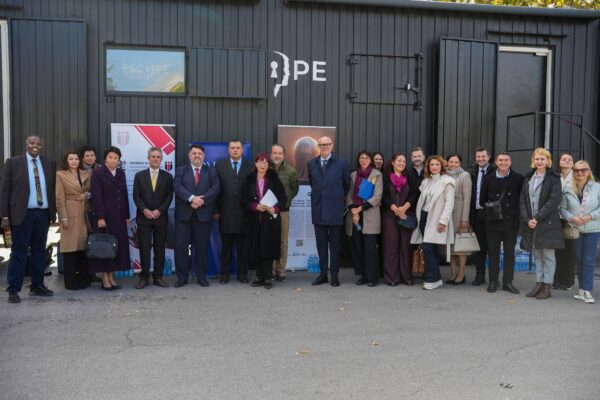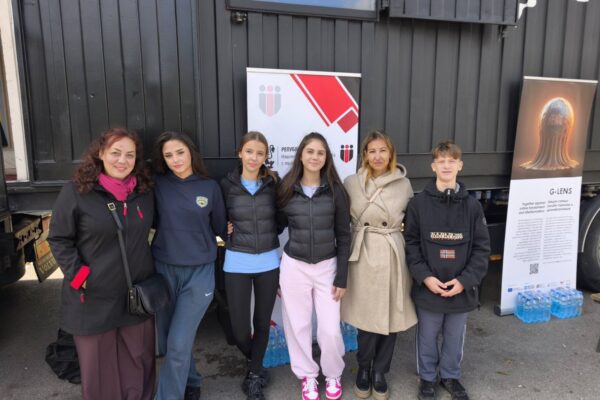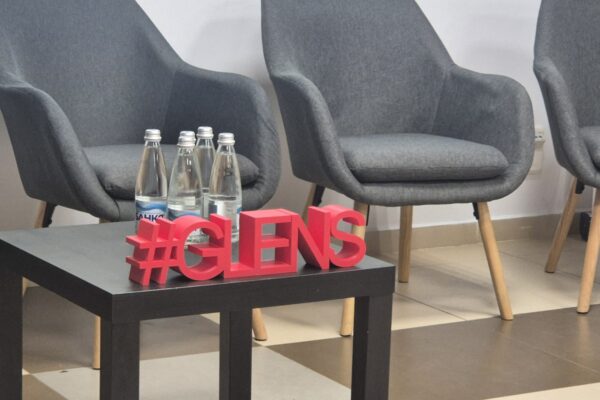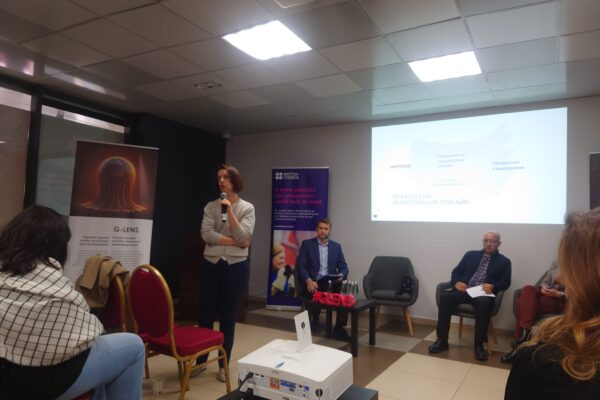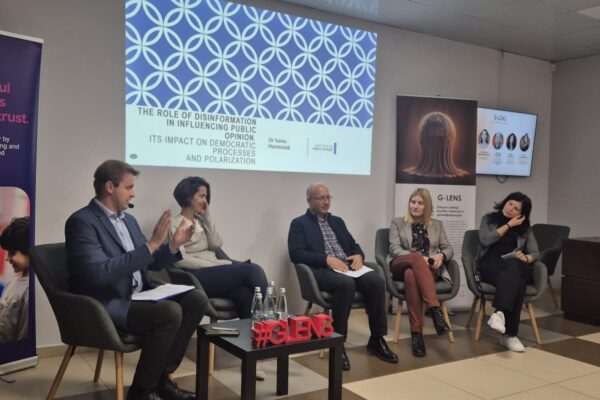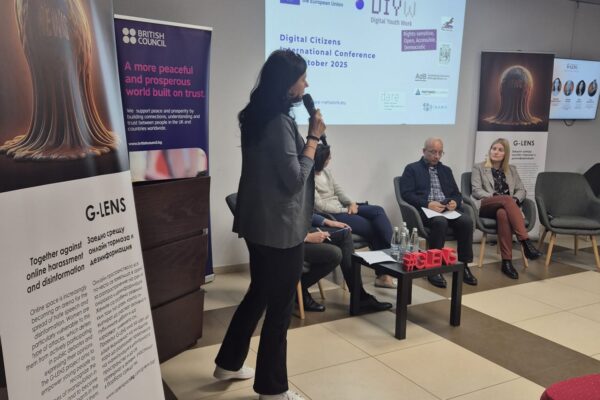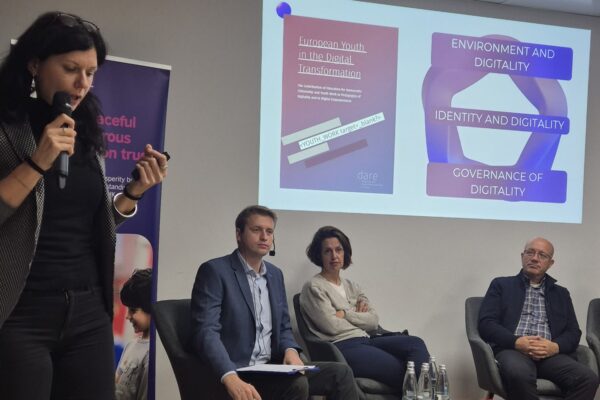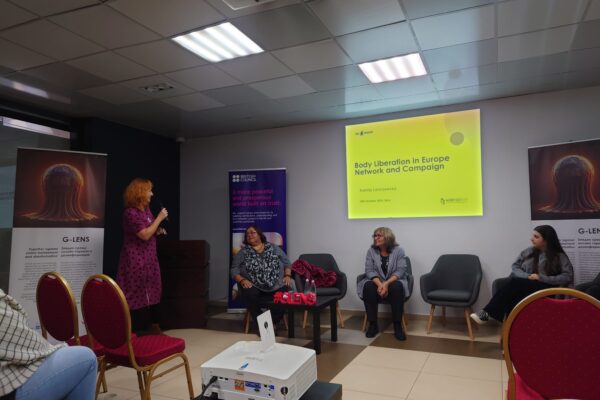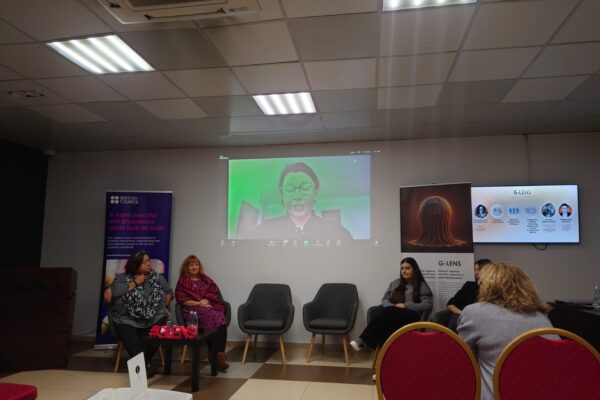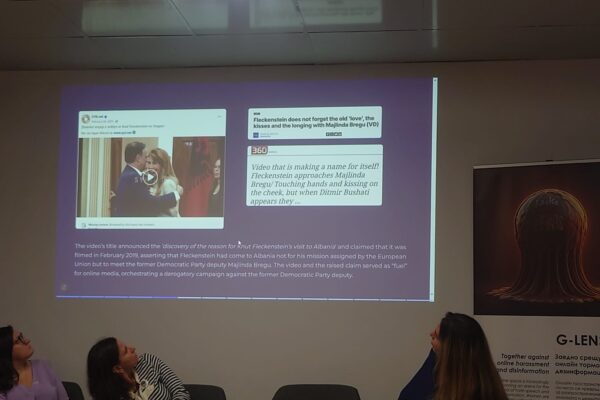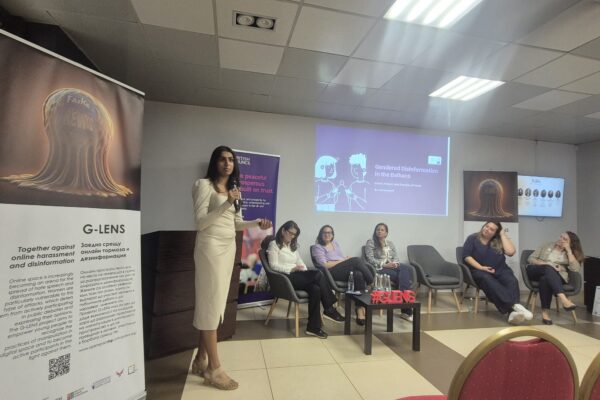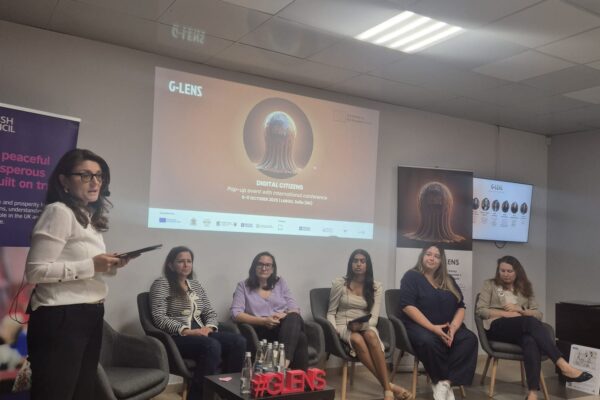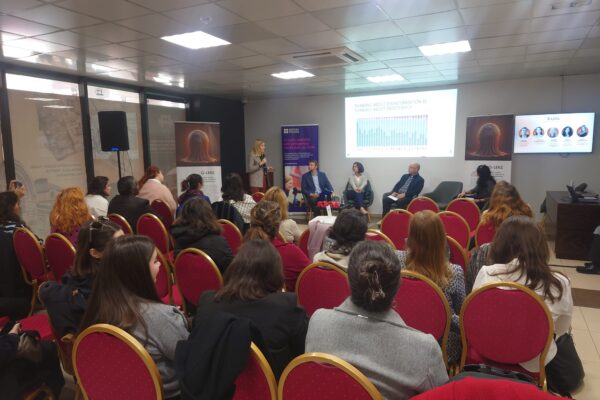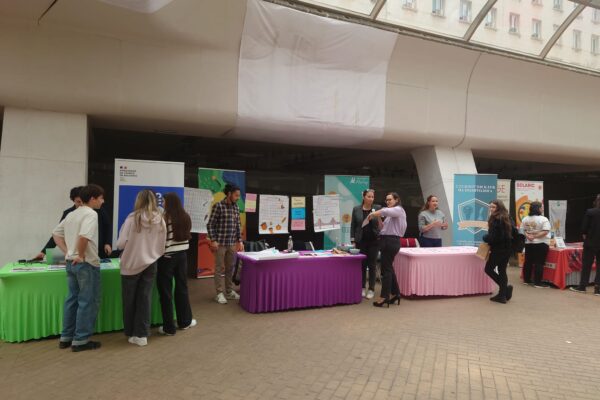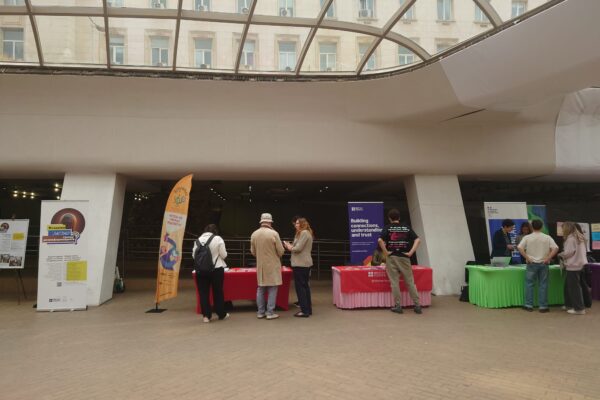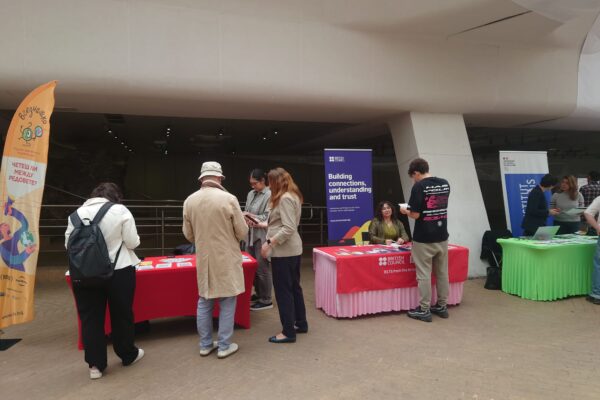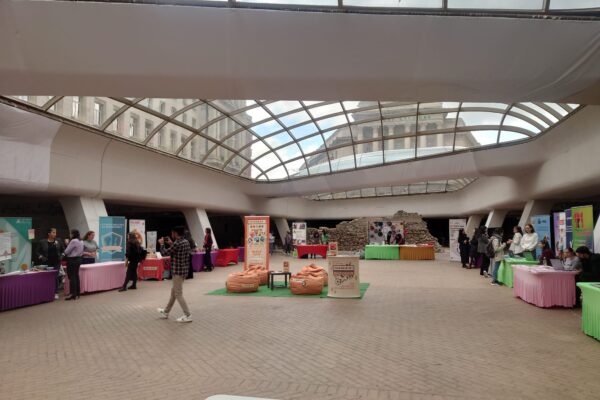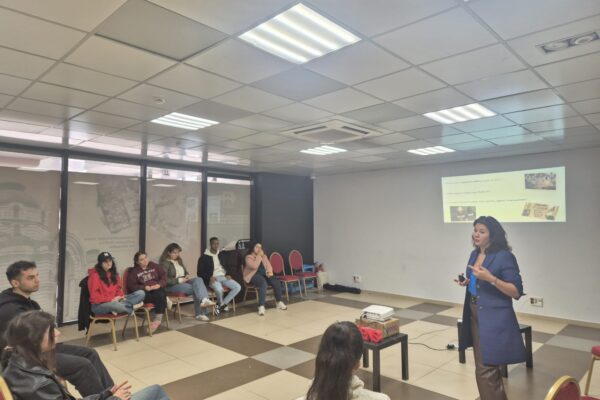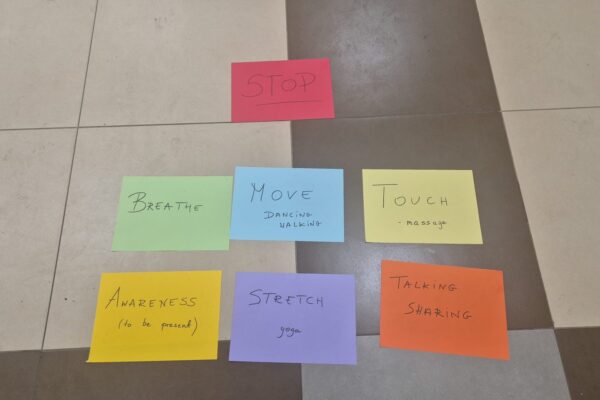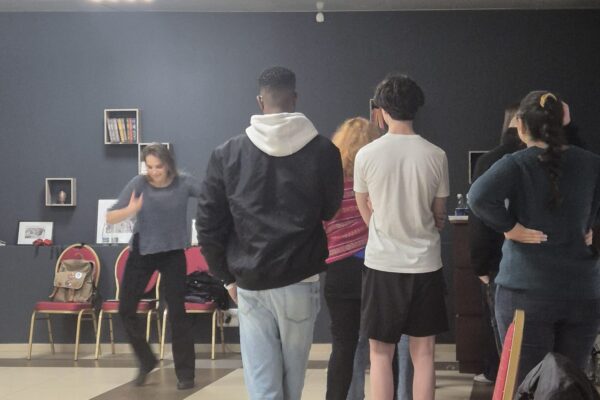Pop-Up Event with CONFERENCE bring together people from 13 countries in Sofia, Bulgaria
“Digital citizens: rights, responsibilities and critical thinking in the digital age” was the topic of the event
Academics, researchers, practitioners, journalists and citizens were together to exchange ideas, views and good practices for prevention (in education, working with the public sector, civil society and the media) to tackle gender-based disinformation. This event provided us with an opportunity to renew old acquaintances, make new contacts, build networks and facilitate partnerships across borders.
The G-LENS (Gender-Inclusive, Long-lasting and Empowered Networks and Societies) project, co-funded by the EU CERV programme, includes research, education and advocacy, with the aim of empowering young people to create a more inclusive and democratic digital environment. The conference is hosted by the Bulgarian partner OPEN SPACE Foundation, a non-governmental organization dedicated to building an inclusive society through education and active civic participation. We believe that young people are the driving force for change, and our main mission is to empower them to be responsible and engaged citizens.
Our journal:
DAY 1: Disinformation and human trafficking
The vulnerability of youth
Disinformation and human trafficking, especially when targeting young people, often go hand in hand. Digital platforms can be used by criminal networks to recruit victims, and disinformation can undermine critical thinking and make people more vulnerable to exploitation and manipulative practices.
ESCAPE TRUCK (From gamification to prevention) opening our EXPO of educational tools for digital culture and media literacy
The mobile ESCAPE room (Escape Truck) was one of the most attractive and effective tools presented at the exhibition for the development of media literacy and digital culture, held within the framework of the Pop-up event “Digital Citizens”. The initiative, created by the Dutch Reshape Foundation (with the support of the Dutch police), is a great example of an innovative approach in education and prevention:
- The mobile escape room was visited by 75 people participated – schoolchildren, students, representatives of local communities and institutions.
- Through an experience inspired by true stories of victims of human trafficking, participants had the opportunity to feel the real risks of exploitation and understand how difficult it is to escape from it
The event on October 9 in Sofia united the efforts of the partners towards informing and empowering young people regarding digital literacy and manipulative practices, disinformation and the risks of involvement in trafficking and exploitation. (The room come in Sofia after visited 11 cities in Bulgaria with 13 events, in which over 1,200 people participated).
- While the conference on October 10th brings together academics, researchers, journalists and citizens to exchange ideas and good practices to combat gender-based disinformation, ESCAPE TRUCK demonstrates how we can reach young people in an unconventional and impactful way.
- The Reshape initiative is a great example of how innovative approaches can be used for educational purposes to prevent the most serious threats that young people face in the digital space today.
DAY 2: INTERNATIONAL CONFERENCE AND PRESENTATION
What did we learn from our conversations with experts?
The Digital Citizens Conference explores digital citizenship, its relationship with rights and responsibilities in the online space, as well as the psychological impact of the digital environment on young people.
Panel 1: Digital Citizenship and Rights in the Digital Age
The panel focuses on the regulatory crisis and the need for trust:
- Bulgaria is inactive in implementing the European Digital Services Act (DSA). Urgent regulatory regulation of digital tools is needed.
- Disinformation is a major problem for democracy, leading to polarization and loss of trust. Young people are vulnerable, as they get their information from profiled social networks.
- Key call: Media literacy must become structural – teaching people to understand the functioning of platforms and to seek ethical perspectives that go beyond financial interests.
Panel 2: Combating Disinformation and Gender Stereotypes
The panel presented practical models for countering harmful gender-based narratives:
- Sexualization and discrimination: Online violence against women is pervasive, sexualized and politically motivated (for delegitimization). Social networks profile information, fueling discrimination.
- Innovative models for countering:
- “Slow Hackathon” (DisinfoHack): Demonstrates the need for slow, in-depth and cross-sectoral analysis of disinformation.
- “Vijte” Media: Presents a model for building critical competences in children through a humane and understandable approach to the news.
- Responsibility: The media has a dual role – they can be perpetrators (through sensationalism), but they are also called to repair the damage. Legislation is needed that requires refutations and accountability from the authors.
Panel 3: Young People on Social Media and Psychological Impact
The panel focused on psychological protection and the need for precise intervention:
- Emotional resilience: The Safer Internet Center in Bulgaria emphasized that children need to be taught emotional strength and to realize that their online behavior is part of offline life.
- Precision in definitions: Experts insist on a precise distinction between aggression, violence and bullying, as the wrong intervention in school dynamics can harm the victim more.
- The psychological burden of Body Shaming leads to the instillation of online shame about body shape, which leads to severe psychological consequences, including suicide. Activist movements work to marginalize exclusion through training and resources.
- General appeal: It is critical to invest in civic and digital education, using working models (“peers teach peers”) and applying an adequate, non-reproachful approach to all ages.
The conference clearly outlined that transforming citizens into responsible and full digital participants requires a comprehensive approach, including urgent regulatory reform, structural education focused on critical thinking and ethics, and psychological support to address the rapid spread of disinformation, harassment, and stereotypes that undermine democratic foundations.
You can download the presentations from here: EXPERTS SPEAK
Parallel to the conference, an EXPO (with its II day) was held, an exhibition of initiatives for digital culture and media literacy
Within the framework of the Digital Citizens conference, an exhibition was held, which brought together leading organizations in Bulgaria, actively working to develop digital culture, critical thinking and media literacy.
The efforts of all participants are aimed at developing key competencies and skills in young people so that they can be responsible and informed digital citizens.
The exhibition demonstrated a wide range of good practices, covering both formal and informal education, civic participation, prevention and social support.
We will soon share a catalog of good practices and resources.
Day 3: Workshops on Empowerment, Resilience and Healthy Digital Spaces
The third day of the Digital Citizens conference was dedicated to practical workshops aimed at empowering and building resilience in young people to deal with the most difficult challenges in the digital world.
The three sessions provided concrete strategies for responding to online crises and transforming harmful online dynamics:
- The first workshop addressed the crisis of sharing personal intimate messages without consent.
- The second: recognizing stressors amplified by the digital world (constant notifications, online conflicts, comparison, misinformation).
- The third: exploring the ways in which rape culture is perpetuated online through gender stereotypes, harassment and fear.
Through open discussions and games, young people were trained to use their rights, responsibilities and critical thinking as digital citizens to challenge harmful norms. The workshops aimed to transform toxic dynamics into healthy, respectful and empowering online spaces by building solidarity and upholding dignity.
The overall goal of the workshops was to equip young people with concrete tools and strategies to move from being passive victims to active creators of safe and respectful digital environments. We will soon see how workshop participants create messages to their peers to convey what they have learned.
With thanks for the support of: Program CERV of EU, Sofia Municipality, RIM Sofia, National Commission for Combating Human Trafficking and British Council in Bulgaria






